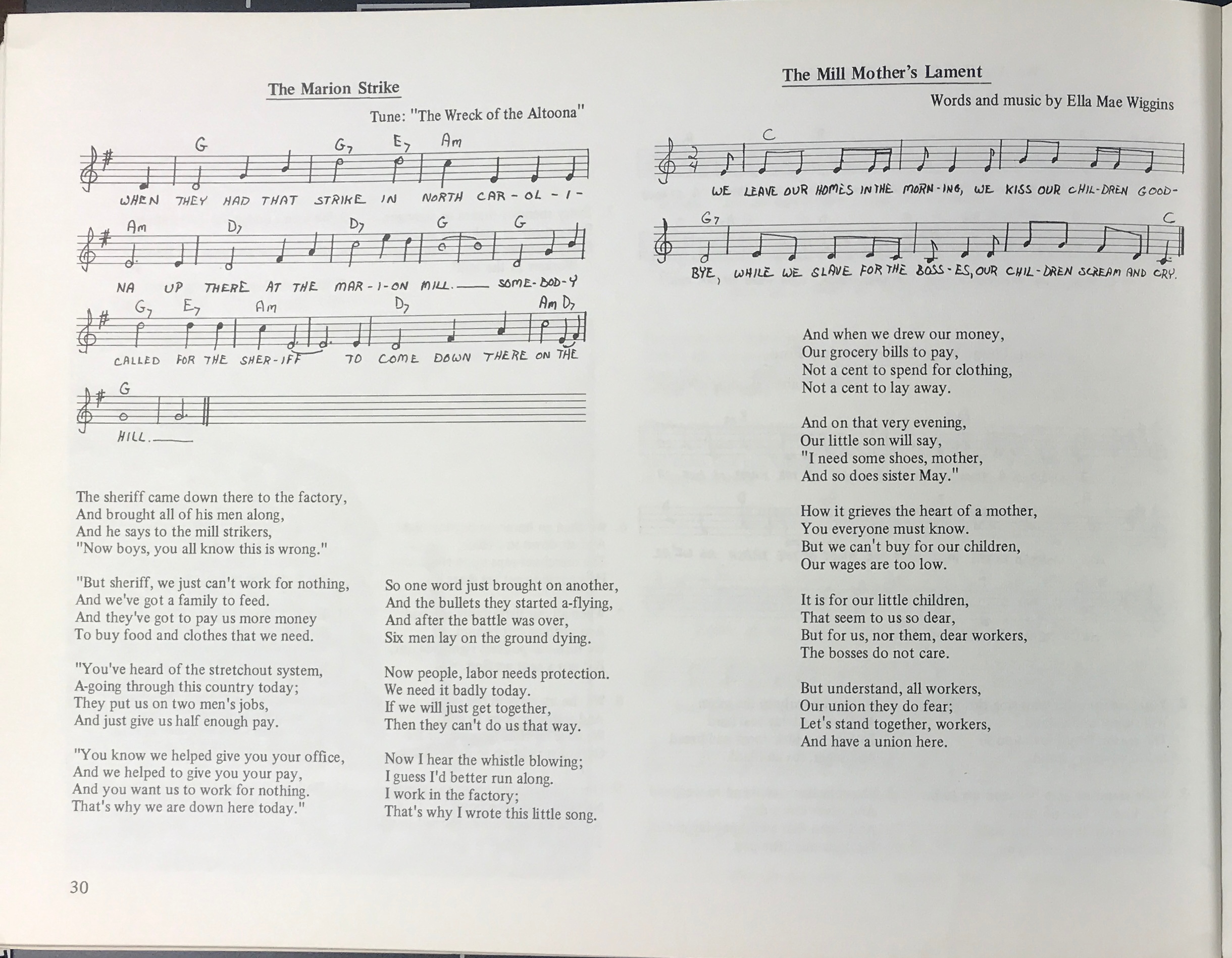
Today marks the 90th anniversary of the June 7th, 1929 violence at the Loray Mill Strike in Gastonia, North Carolina. The strike started in April of 1929 with the arrival of the National Textile Workers Union. The workers at the mill began striking for their demands. On June 7th sheriff’s deputies raided tents set up near the mill by striking workers. Violence ensued, and Police Chief Orville Aderholt was killed.
Just a few months after the culmination of the Loray Mill Strike, in September of 1929, Ella May Wiggins, a 29-year-old working mother and strike organizer, was killed by a mob of men trying to run the strikers out of town. The union was preparing for a large rally at which Ella May Wiggins would sing her ballads. On the way to the meeting, Ella May and other union members were attacked by anti-strikers. Ella May was one of many mill women and girls who protested the working conditions, hours and little pay in the Gaston County Mills in 1929. Often overlooked, the women working in the mills had a huge impact on the future of labor organizing in the South.
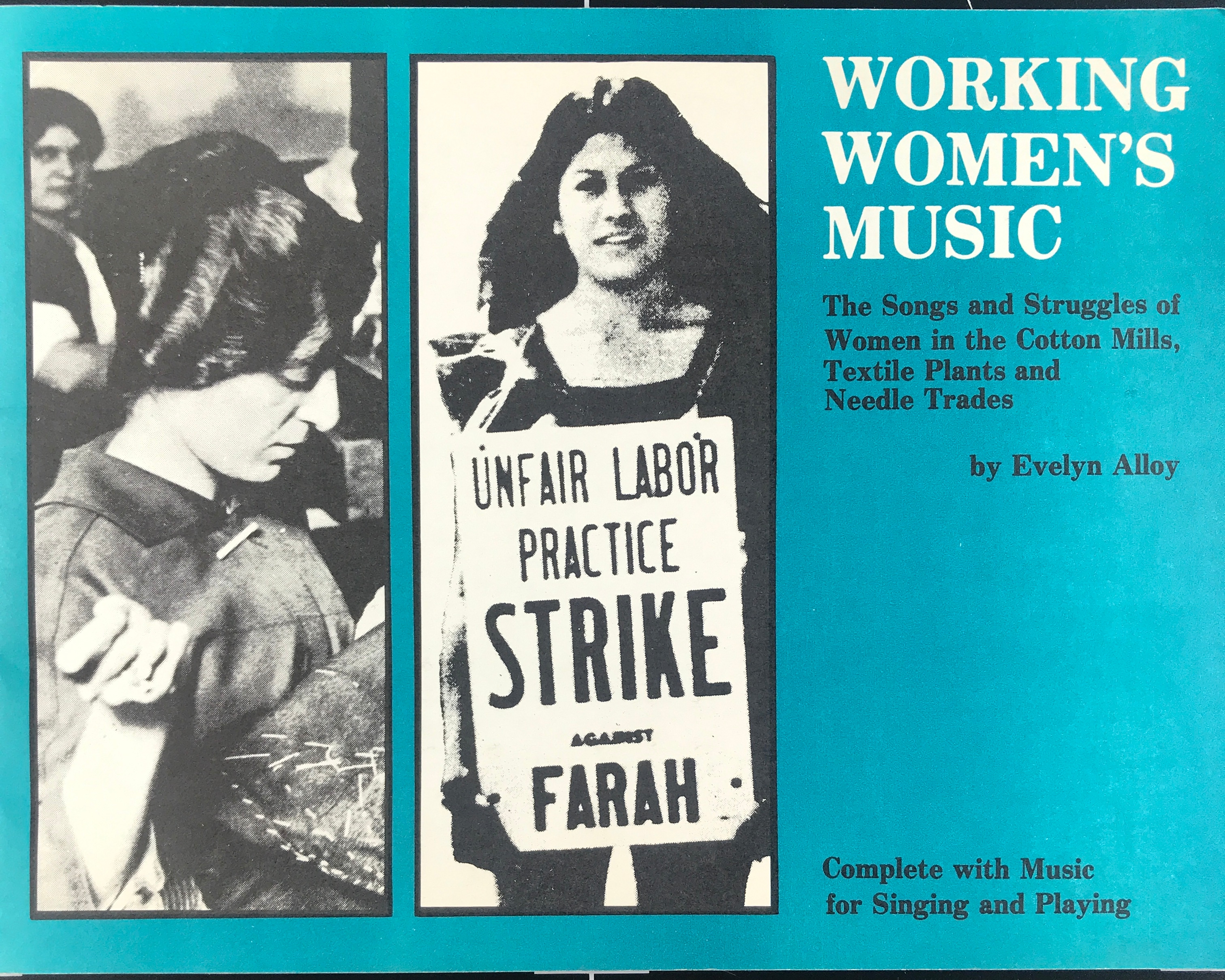
Ella May’s legacy lives on in the protest songs and ballads she wrote and sang. Her most popular protest song is “Mill Mother’s Lament,” a ballad covered by Pete Seeger on the album American Industrial Ballads.
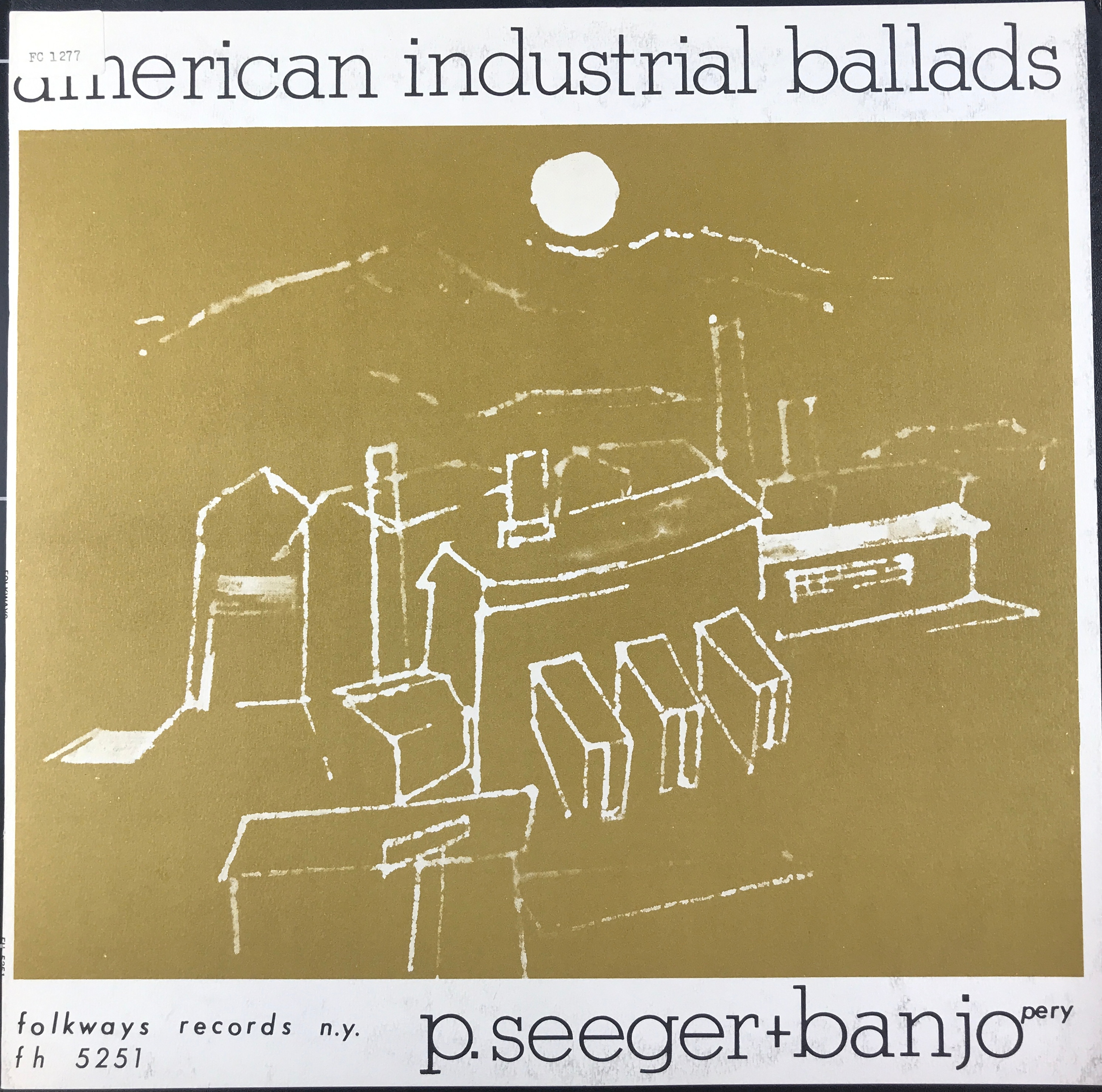
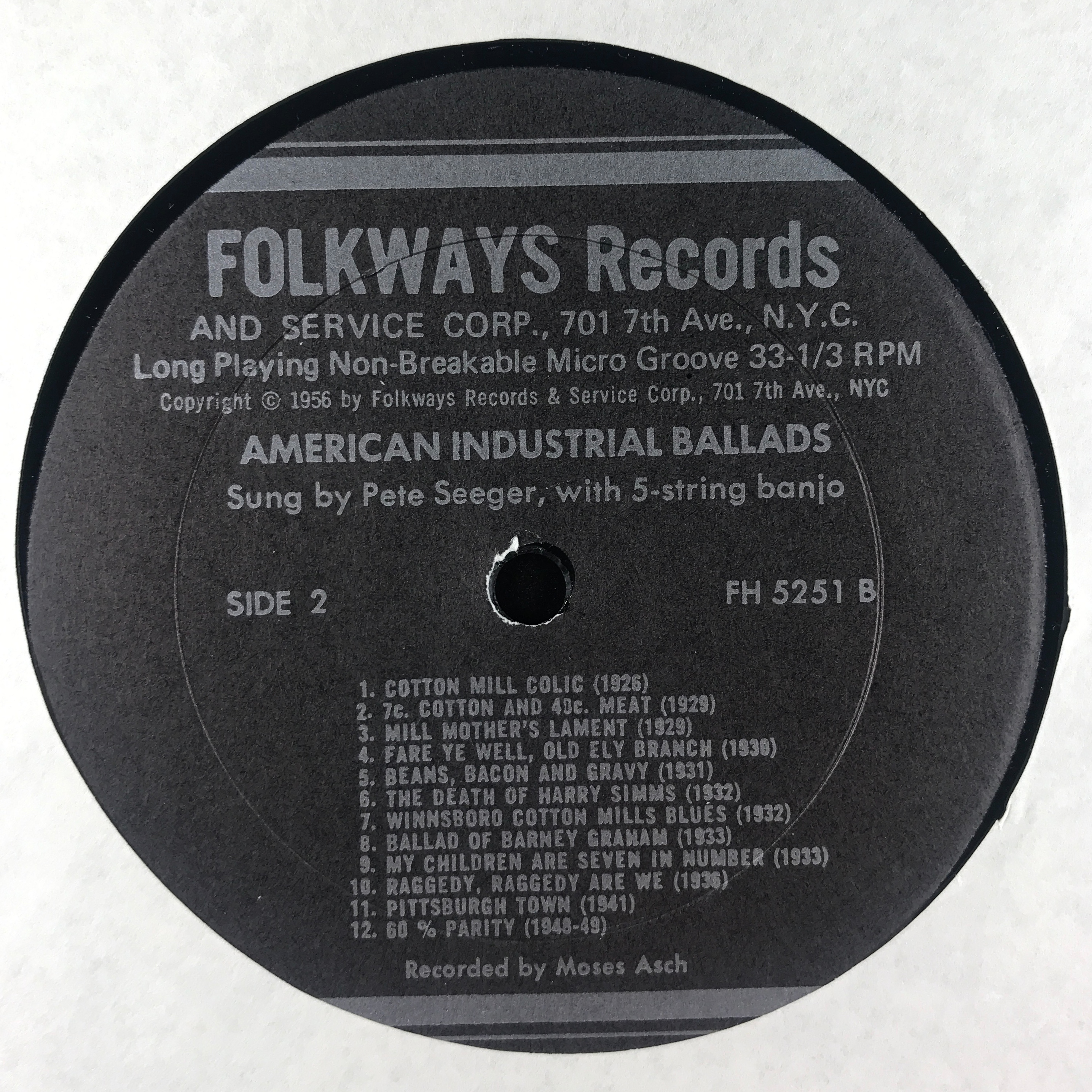
She also penned songs such as “The Big Fat Boss and the Worker” and “Up in Old Loray,” that were sung at union meetings and rallies. Some accounts say that Ella May did not write “Up in Old Loray,” but the lyrics in the Archie Green Collection have Ella May credited as the writer. Handwritten and typed copies of the lyrics to a few of her songs can be found in the Archie Green Papers.
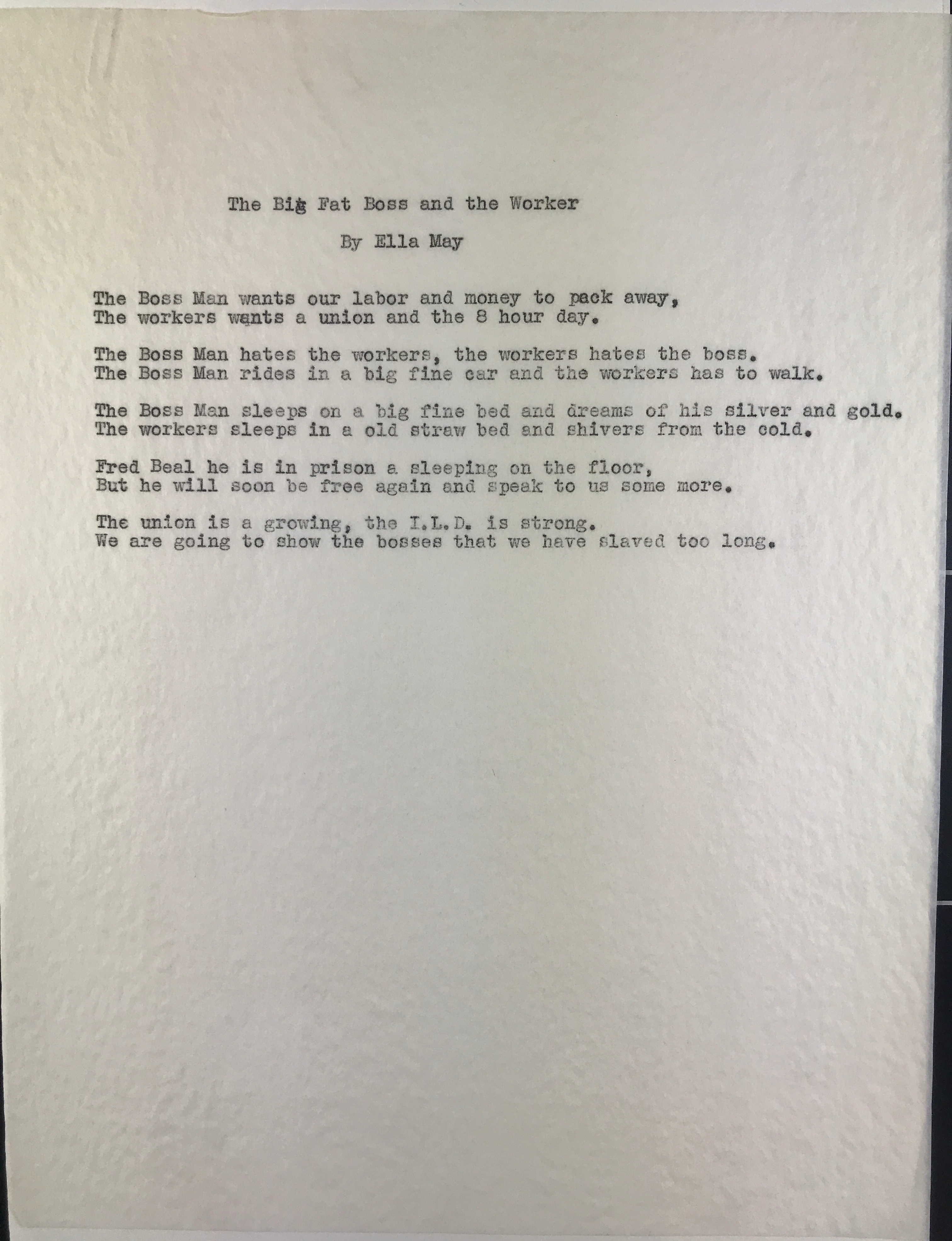
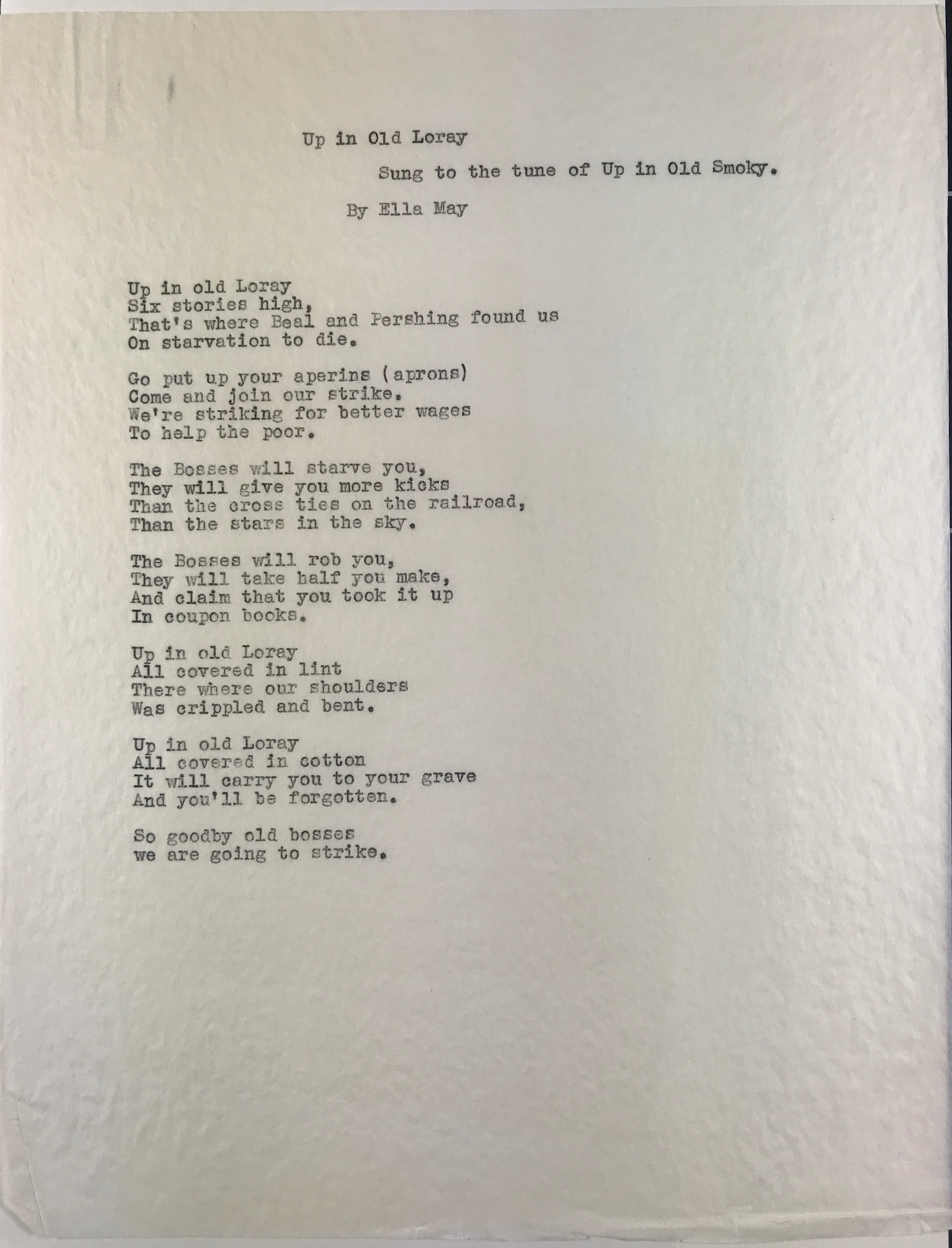
Many of the mill workers that fought for better working conditions during the strikes in 1929 will go unnamed. We are lucky to have Ella May’s songs as a reminder of her spirit and tenacity.
If you are looking to learn even more about Ella May Wiggins, check out The Southern Historical Collection’s oral histories of Ella May’s daughters, Millie Wiggins Wandell and Charlotte Wiggins. These tapes were digitized and are streaming online thanks to our generous grant from the Andrew W. Mellon Foundation.
Cox, Annette. “The Saga of Ella May Wiggins.” Southern Cultures, The University of North Carolina Press, 4 Oct. 2015, muse.jhu.edu/article/594509. Web. 7 June 2019.
Huber, Patrick. “Mill Mother’s Lament: Ella May Wiggins and the Gastonia Textile Strike of 1929.”Southern Cultures, vol. 15, no. 3, 2009, pp. 81-110. Web. 7 June 2019.
Jones, Loyal. “On the Death of Union Organizer and Balladeer Ella May Wiggins, A Tale of Two Families.” Review of Book. Appalachian Journal, vol. 43, no. 3-4, 2016, pp. 252–262. Web. 7 June 2019.
McShane, Chuck. “Tar Heel History: The Loray Mill Strike.” Our State Magazine, 17 May 2015, www.ourstate.com/loray-mill-strike/. Web 7 June 2019.
Melanie Meents
Joan Fenton and Documenting Southern Tall Tales
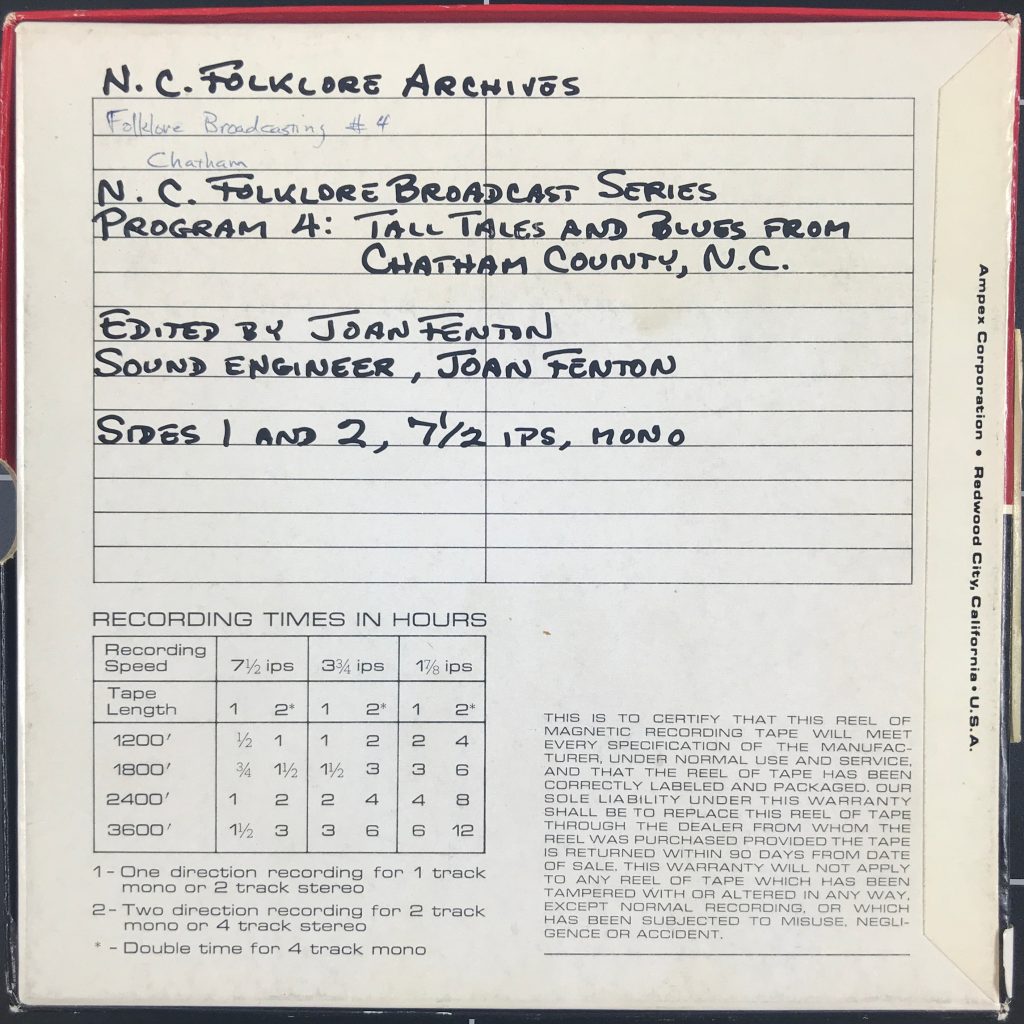
Joan Fenton was a folklorist and performer who earned a master’s degree in folklore from the University of North Carolina Chapel Hill. The sound recordings in this collection include interviews, oral histories, songs, and tall tales from artists and musicians throughout North Carolina, South Carolina, West Virginia, and Louisiana. She also recorded a gospel group at an African American church service near Princeton, West Virginia. Those recordings include sermons and testimonies from members of the congregation. Thanks to our generous grant from the Andrew W. Mellon Foundation, the audio items in the Fenton collection are available and streaming online from the finding aid.
Fenton wrote the thesis for her master’s on Howard Cotten, a black tall-tale teller from North Carolina. These recordings include songs, tales, and interviews with Mr. Cotten and others like Laura Lea, a quilter from Chatham County, NC and Cotton’s friend and cousin, Willie Brooks. In the interviews, Cotten sings and tells stories about hitchhiking, ghosts, possum hunting, talking dogs, seeing a train for the first time and more (FT-20015/890-908).
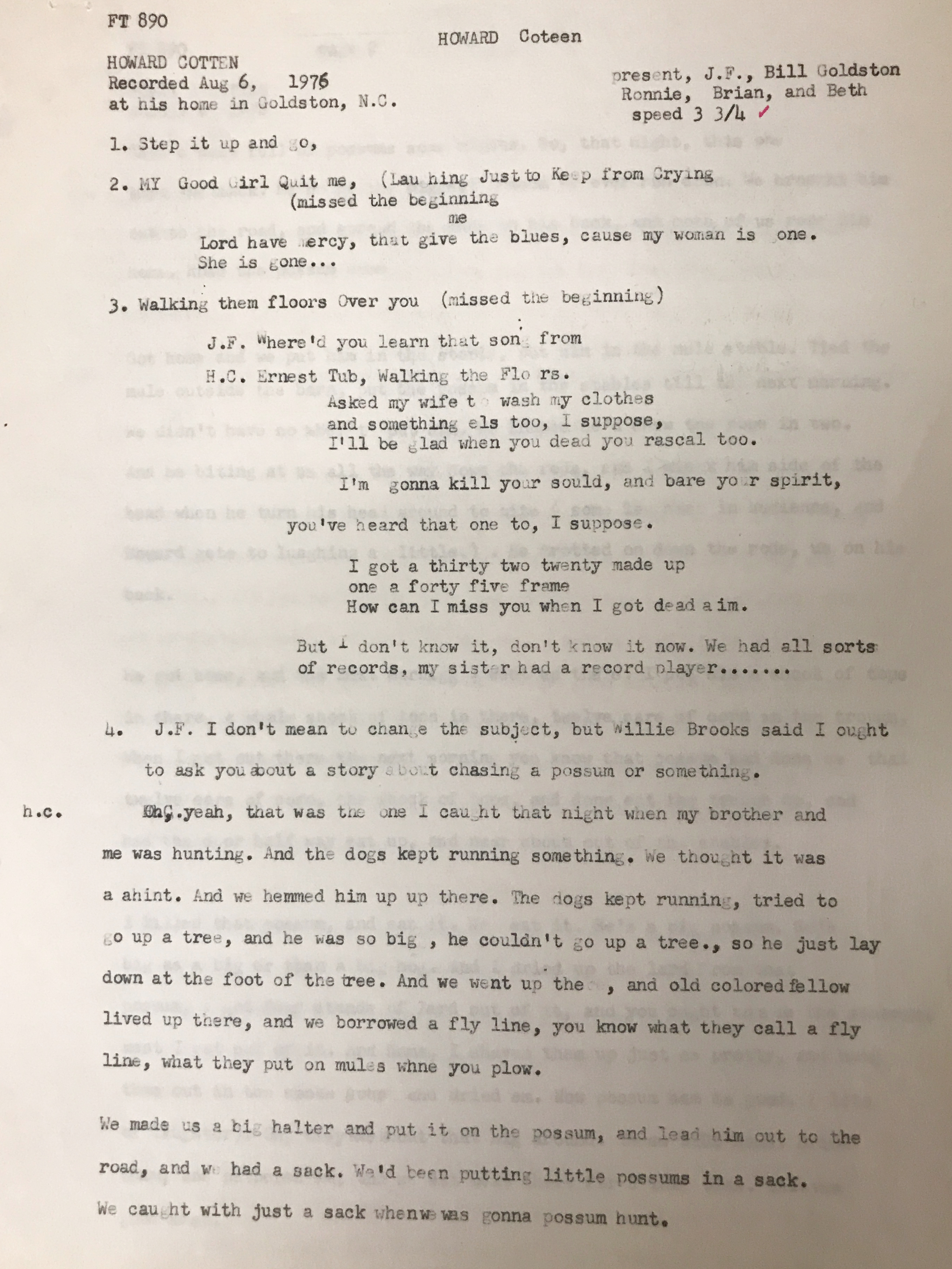
The above interview is streaming through the finding aid.
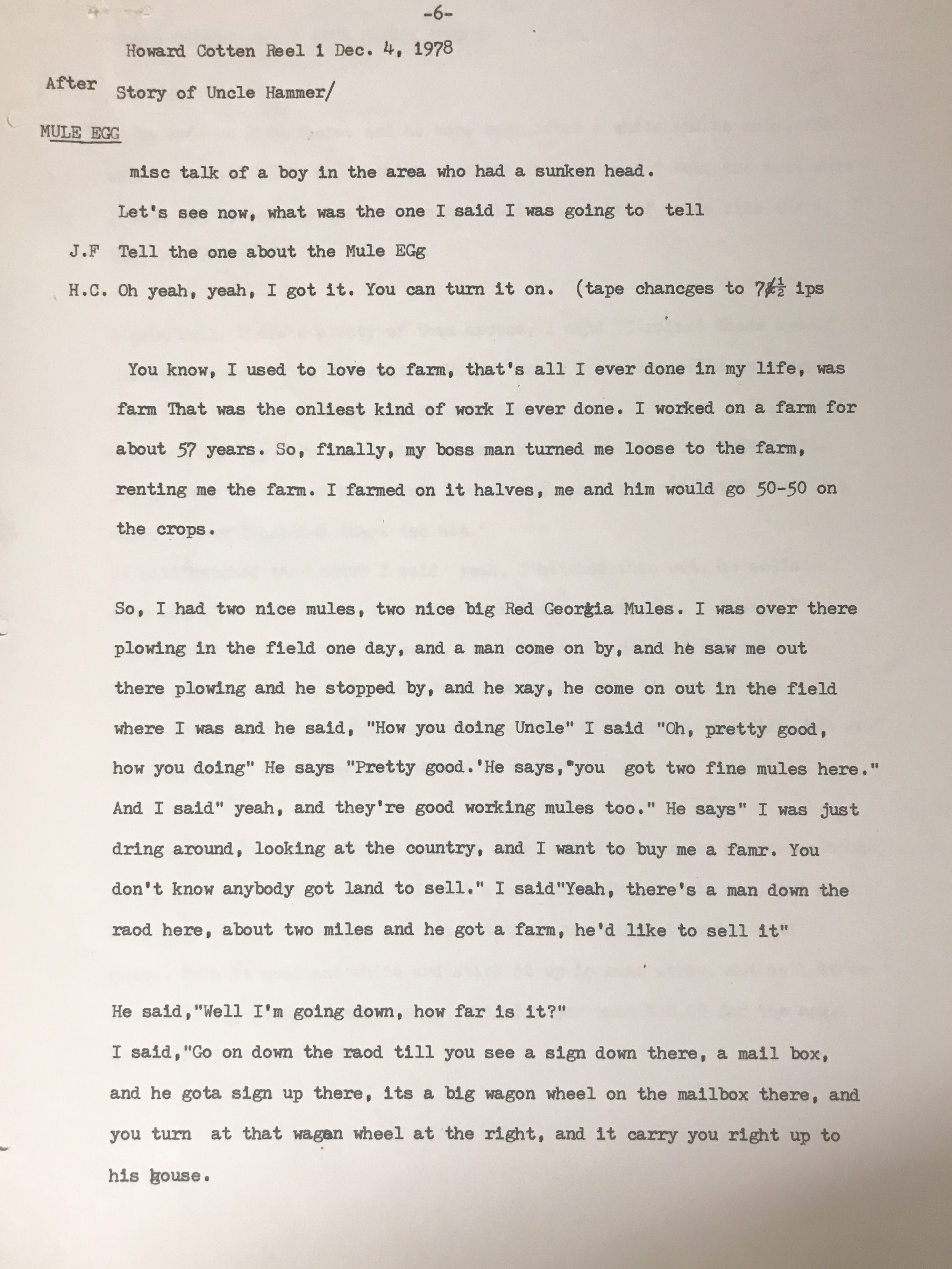
Fenton was the editor and sound engineer on an episode of the UNC Folklore Broadcast featuring a recording of Howard Cotten and Willie Brooks telling tall tales or lies, as Fenton calls them in the introduction to the broadcast, along with blues songs and additional explanation and commentary in between songs and stories.
Some of my favorite audio recordings in the collection are from the John Henry Folk Festival in 1978. She gathered many interviews from this festival with musicians and attendees. She asks questions about the folk festival, why people attend this specific festival, what the blues mean to them, the importance of gospel music at a festival such as the John Henry festival, and many others. The answers she gets to her questions are part of larger conversations that are still relevant today. Some of the folks interviewed include Sparky Rucker, Ron Wilkerson, Hazel Dickens, Phyllis Boren, The Badgett Sisters, and Pigmeat Jarrett.
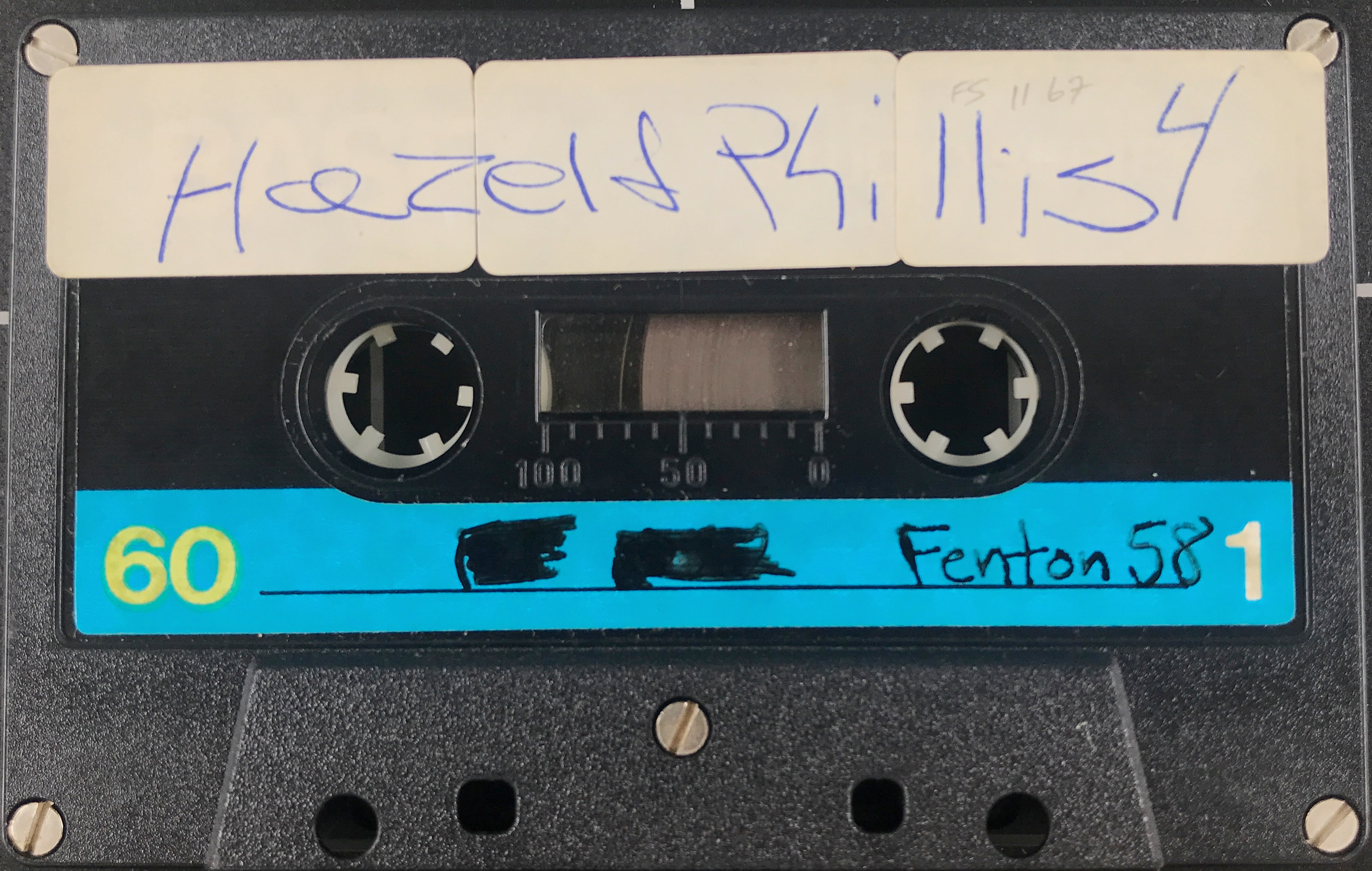
Finally, Fenton took part in video documentation of blues musicians including videos of Willie Trice. Fenton is described as recording the videos. They are also accessible and streaming in the Southern Folklife Collection Moving Image Materials finding aid. (VOR-30002/110-111).
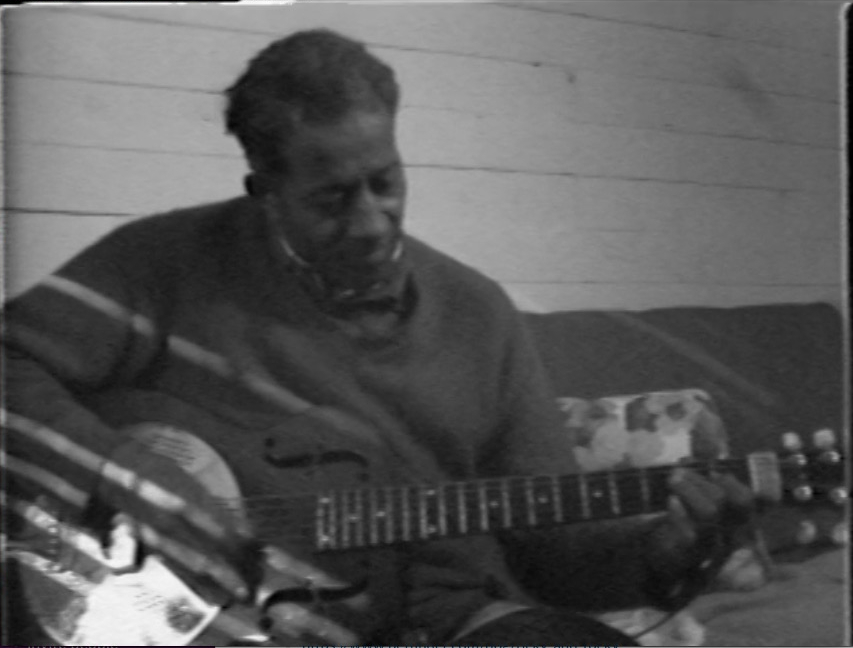
Fenton resides in Charlottesville, VA where she owns 9 retail stores. She is one of the organizers of Blues Week at the Augusta Heritage Workshop in Elkins, WV.
Student Television Collection
Over the past two months, we have been processing and arranging the University Archives Student Television at the University of North Carolina at Chapel Hill collection (#40326) as part of the next phase of our generous grant from the Andrew W. Mellon Foundation.
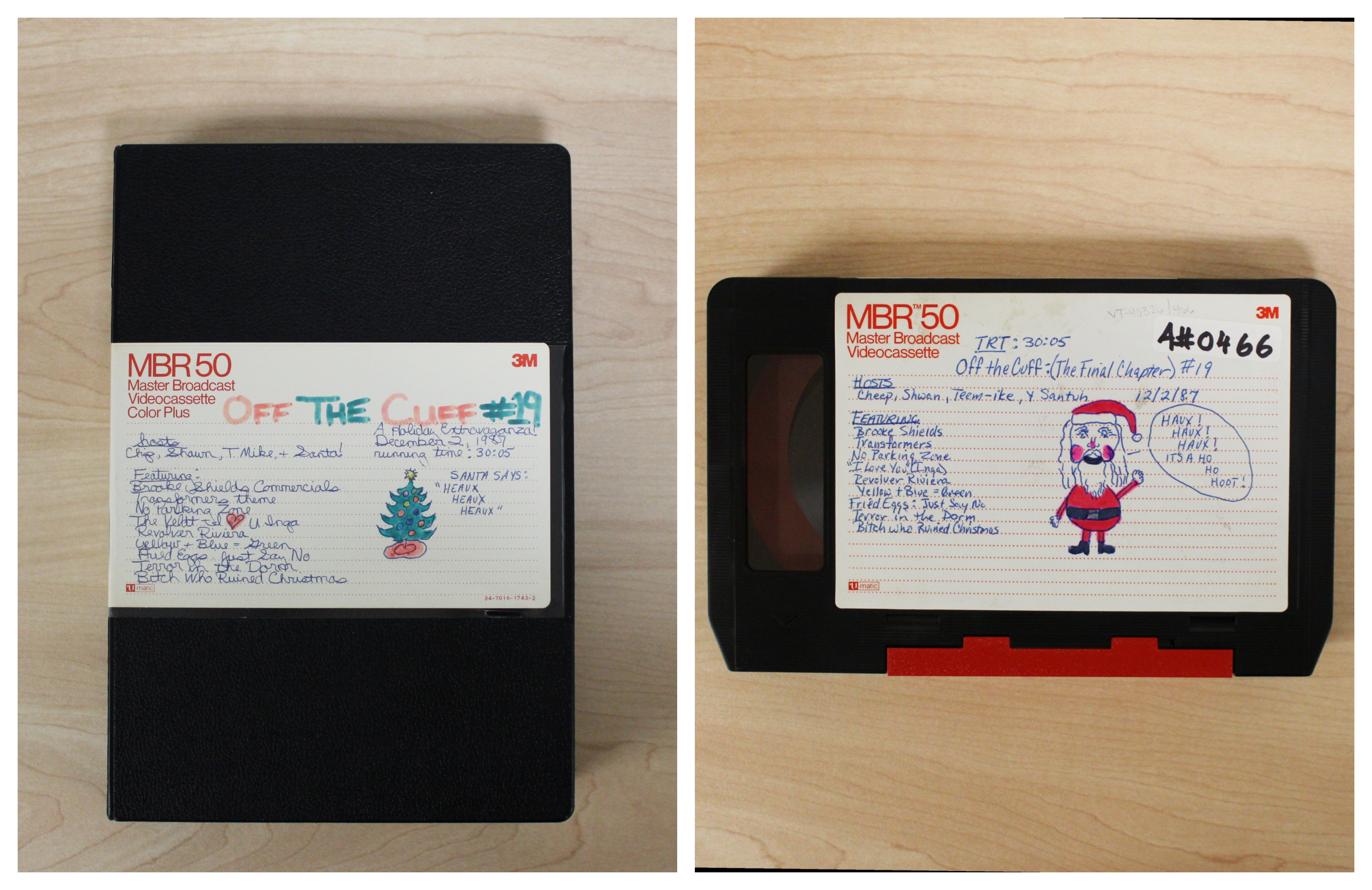
This collection of video recordings features original, student-produced shows, along with recordings of events and speeches around campus made by UNC Student Television between the years 1983-2010. There are more than 1,600 recordings in the collection on U-matic, VHS, and mini-DV analog formats. A few shows are still running today including General College and Late Night STV. UNC Student Television is a completely student-run television station for the University of North Carolina at Chapel Hill. Founded in 1983, it is now one of the largest media organizations on campus.
The finding aid for this collection will be available soon, but until then we thought we’d give you some highlights.
Off the Cuff is a long running sketch comedy show, and the STV collection features around 200 items with related Off the Cuff content. Pictured above and below is a sample of U-matic and VHS tapes found in the collection, all featuring Off the Cuff shows and segments.
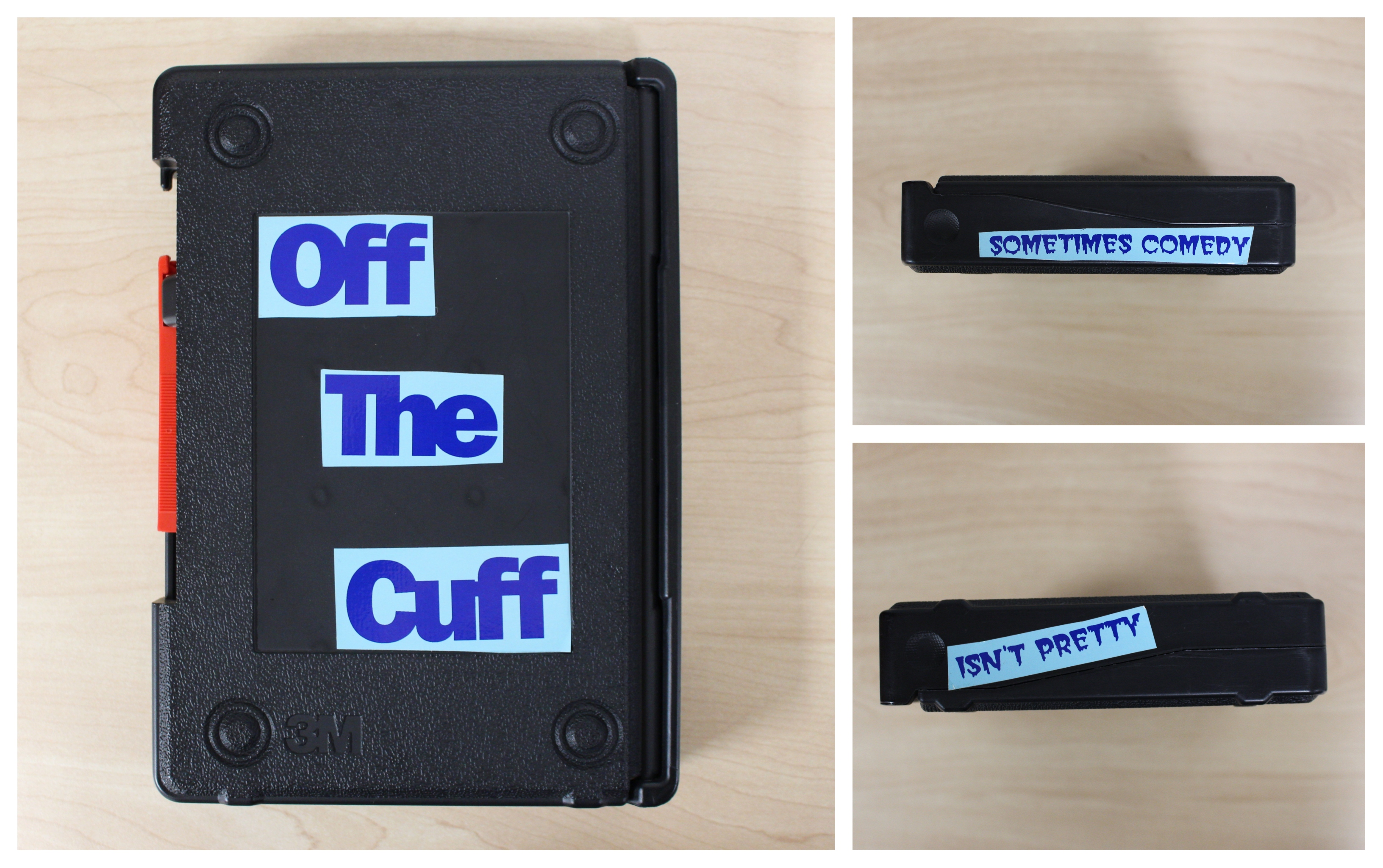
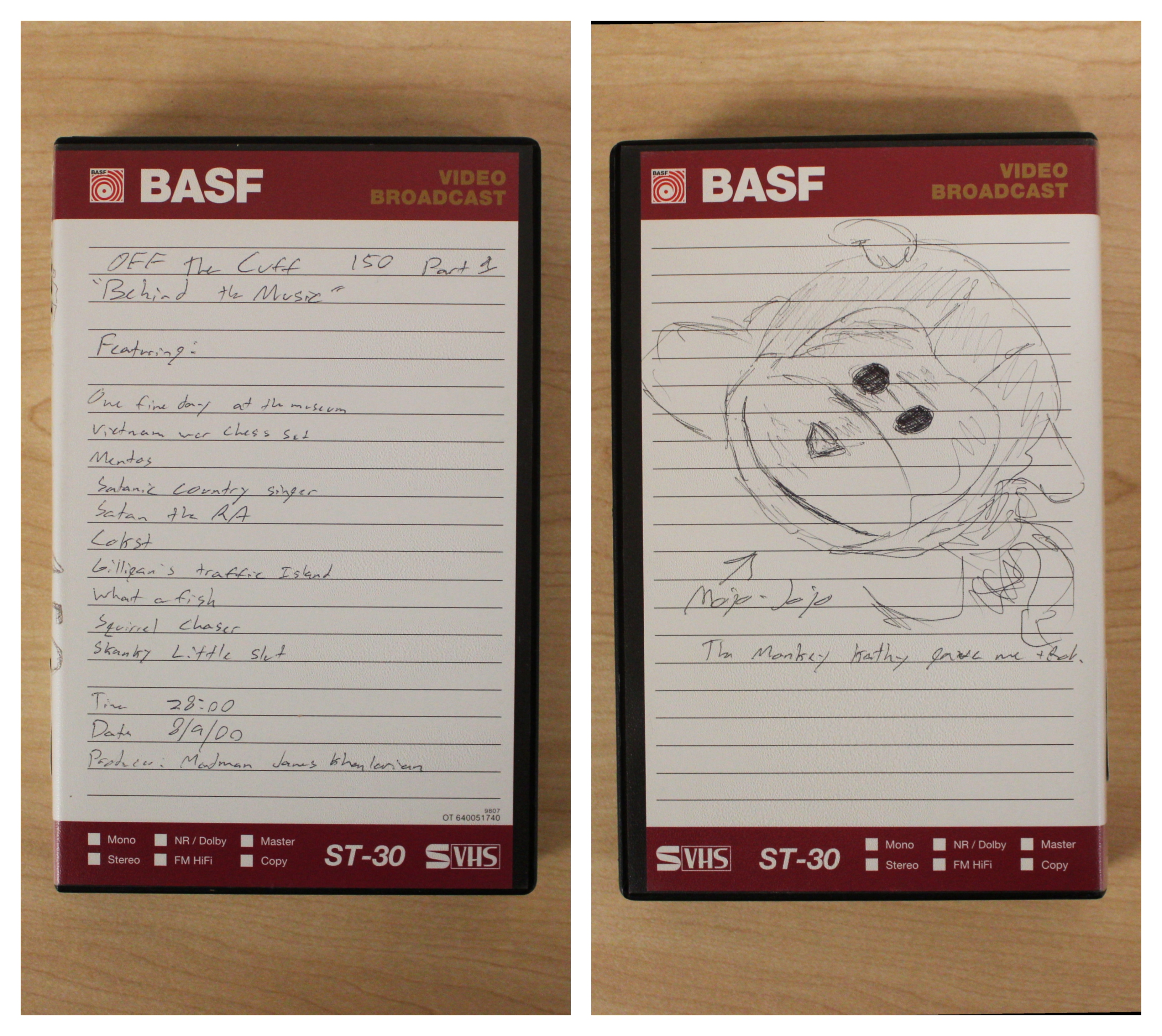
General College is another long running show featured in the collection. STV describes it as a “surreal melodrama with comedic elements,” and episodes are sequential by season. Below is a short clip of the General College intro from episode #14 produced in the fall of 1988 (VT-40326/104).
